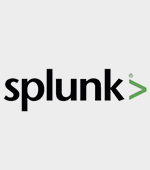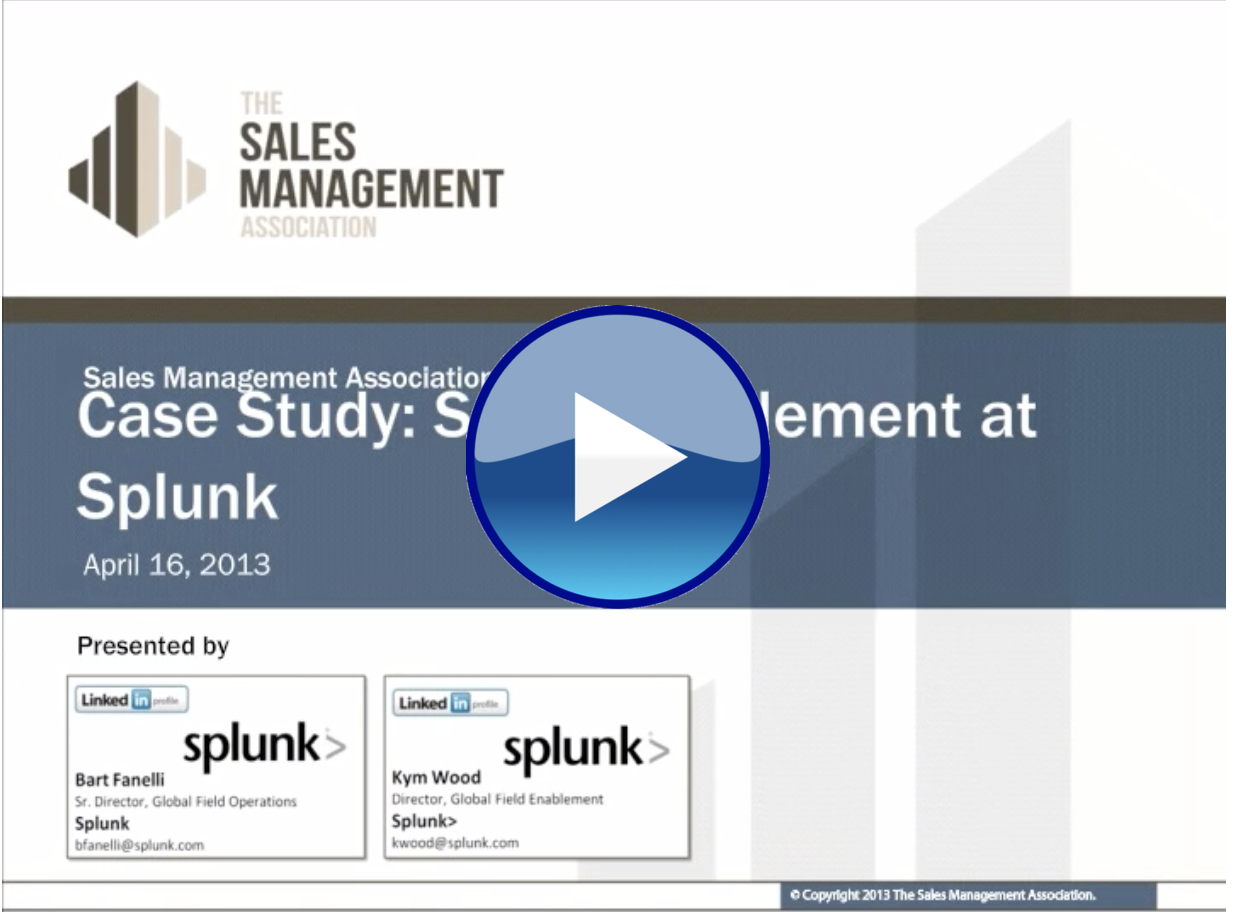 We recently featured Splunk sales effectiveness leaders Bart Fanelli and Kym Wood in “Case Study: Sales Enablement at Splunk.” Splunk (NASDAQ:SPLK) has taken the “big data” space by storm; the firm IPO’d in April. Their webcast is noteworthy on several fronts: it offers great practitioner-focused perspective on effective sales enablement; and it makes a compelling case for re-thinking sales training content development and delivery.
We recently featured Splunk sales effectiveness leaders Bart Fanelli and Kym Wood in “Case Study: Sales Enablement at Splunk.” Splunk (NASDAQ:SPLK) has taken the “big data” space by storm; the firm IPO’d in April. Their webcast is noteworthy on several fronts: it offers great practitioner-focused perspective on effective sales enablement; and it makes a compelling case for re-thinking sales training content development and delivery.
The term “sales enablement” is freely used, and means different things to different constituents (to wit, the hilariously tortured Forrester definition).
Splunk’s approach, as described by Fanelli and Wood, is very much focused on salesperson skill development. In fact, they suggest that identifying essential salesperson competencies is a great first step in outlining an effective enablement strategy. Also essential: developing content that is customized, dynamic and mobile-enabled.
Their platform (which includes Sales Management Association underwriter Qvidian’s technology) attempts to serve content to sellers when they need it most — in the field, and within the context of an actual sales process — rather than in the classroom. They believe this best reinforces key skills, and we agree.
The two make a few other important points:
- Salesperson onboarding represents a crucial element of any sales enablement program, and provides a foundation for reinforcing skills over time. This is especially critical to a hyper-growth startup environment like Splunk’s.
- Enablement content, such as learning modules, should be customized to different stages in the sales process (or processes).
- Content must quickly adapt as sellers’ needs and market conditions change.
For Sales Management Association members, view the webcast in its entirety and download slides here.







